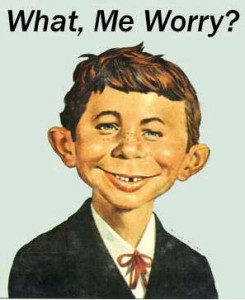“Writer worry” is something many of us deal with. I have in the past, and switching genres from science fiction and fantasy recently created new writer worries. I dove into the KZB archives and again found gold. Today’s first Words of Wisdom excerpt is from a 2009 post. James Scott Bell lays out his approach to dealing with writer worry.
Getting the tone of a novel right is an issue I have spent a lot time thinking about, since I went from writing the thriller-esque urban fantasy Empowered series to the lighter Meg Booker mysteries. Especially since I am aiming to hit the right notes in a specific sub-genre. An excerpt from a P.J. Parrish 2014 post tackles this challenge.
The last selection is from December 2019. Sue Coletta discusses the calming power of breath to help with body and mind. “Belly breathing” is something I learned while practicing yoga. Sue dives into how it works and how it can benefit us.
As always, full posts are linked from the date provided at the bottom of each excerpt. It is worth reading the full posts. Please let us know what you think about any or all of these topics

Call this my own, personal modus operandi for dealing with writer worry. It will work for you if you follow these steps:
- Take a moment to note the benefits of your worry. You are engaged. You are alive. You have blood coursing through your veins. You are not a chair.
- Remind yourself of the truth handed down by a wise Jewish carpenter, who once said, “Who by worrying can add one cubit to his span of life?” IOW, worry does absolutely no good regarding future outcomes and you know that.Tell yourself over and over until it sinks in.
- Now, figure out what’s the worst thing that can happen if you don’t get your desired result. Let’s say you’re waiting to hear about a submission to Penguin. What’s the worst? You get rejected by Penguin. That’s it. (Do not let your imagination run away with you. The very worstthing that can happen is that the acquisitions editor is so angry at your abuse of literature she hires a hit man to take you out. I mean, be reasonable).
- Next, write down all the ways you can come back strong if the worst thing happens. You got rejected by Penguin. How do you come back from that? You can a) submit elsewhere; b) prepare another project; c) rework the current project according to feedback; d) schedule a talk with your agent; e) study some aspect of the craft you’re weak on. And so forth.
- After going through steps 3 and 4, tell yourself that you can live with the worst thing.If it happens, it’s not going to debilitate you. It’s not going to stop you. Determine to accept the worst if it happens.
James Scott Bell–December 6, 2009
Tone is so important. And it’s not really the same as mood. Tone is the narrator’s attitude toward the subject — be it playful, ironic, dark, hardboiled, romantic — whereas the mood is what the reader feels by virtue of the setting, theme and voice. And I think tone is something often overlooked by some beginning writers. You, the writer, have to know in your heart what kind of book you are setting out to write. And then you should bend all the powers of your craft to that end. Poe called it Unity of Effect and wrote about it in his essay “The Philosophy of Composition.” He believed that a work of fiction should be written only after the author has decided which emotional response, or “effect,” he wishes to create. And once that was decided, everything else — theme, setting, characters, conflict, and plot — should serve the effect.
We do this via the countless choices we make as writers. What words we use, what imagery is in play, what the sentence structure is, what details we put in (as well as those we leave out). Here’s a visual.:


Both are photos of the Everglades. I’m choosing them because I also went on a “swamp walk” hike in the Corkscrew Swamp this week. The first photograph is by Susan Schermer. The second is by Clyde Butcher. Schermer’s is lush and color-saturated, with emphasis on the birds and setting sun. Butcher’s is desolate, empty of all apparent life and in stark black and white. The first is somewhat sentimental; the second almost existential. Both artists made choices about what details they wanted to include — or leave out — in their work, how they lit their landscapes, the types of trees, the quality of the water.
Same subject, different tones. Each is successful in its own way. But you can’t mistake one for the other.
So what’s my point? I’m not asking anyone to buttonhole their work. It isn’t necessary to try to psyche out editors and the folks who shelve the books at Barnes and Noble. (Is this neo-noir? Is it chick lit? Is it teen dystopia? Do we even care anymore?) I’m not even talking about all the sub-genres we tend to impose upon crime fiction. Some of the best stuff being written in crime fiction right now crosses so-called divides and genres.
What I am asking for, I think, is consistency. And honesty. Be honest with your readers. I don’t mean be predictable. Being honest means finding a tone for your work and sticking with it so that the reality you create on your pages is believable and satisfying. If you want to write romance or romance suspense, go for it and do it well.
P.J. Parrish—March 25, 2014
When chaos starts shaking the to-do list in my face, I close my eyes, lean back, and breathe… It’s amazing what a few deep breaths can do. There’s a running joke in my family that I’m so chill, I’m practically a corpse. It’s true! My blood pressure rarely, if ever, rises above 110/60, even under stressful conditions. And you know why? Because I take advantage of the most powerful and the most basic gift we have — the ability to breathe.
It may not sound like much of a superpower, but controlled breathing improves overall health. Controlled breaths can calm the brain, regulate blood pressure, improve memory, feed the emotional region of the brain, boost the immune system, and increase energy and metabolism levels.
The Brain’s Breathing Pacemaker
A 2016 study accidently discovered a neural circuit in the brainstem that plays a pivotal role in the breathing-brain control connection. This circuit is called “the brain’s breathing pacemaker,” because it can be adjusted by alternating breathing rhythm, which influences our emotional state. Slow, controlled breathing decreases activity in the circuit while fast, erratic breathing increases activity. Why this occurs is still largely unknown, but knowing this circuit exists is a huge step closer to figuring it out.
Breathing Decreases Pain
Specifically, diaphragmatic breathing exercises. Ever watch an infant sleep? Their little tummy expands on the inhale and depletes on the exhale. They’re breathing through their diaphragm. We’re born breathing this way. It’s only as we grow older that we start depending on our lungs to do all the work.
Singers and athletes take advantage of diaphragmatic breathing techniques. Why not writers? If you find yourself hunched over the keyboard for too long, take a few moments to lay flat and concentrate on inflating your belly as you inhale through your nostrils. Then exhale while pulling your belly button toward your core. It takes a little practice to master the technique. Once you do, you can diaphragmatically breathe in any position. The best part is, it works!
Count Breaths for Emotional Well-Being
In 2018, another scientific study found that the mere act of counting breaths influenced “neuronal oscillations throughout the brain” in regions related to emotion. When participants counted correctly, brain activity showed a more organized pattern in the regions related to emotion, memory, and awareness, verse participants who breathed normally (without counting).
Sue Coletta—December 16, 2019
***
There you have it: steps to deal with writer worry, tips on getting your book’s tone right, and diaphragmic breathing to help with your body and mind.
- Do you have any writer worries? How do you deal with them?
- Have you ever struggled with a novel’s tone while writing? Have you ever stopped reading a book that was “tone-deaf?”
- Have you tried breathing to help with focus while writing, managing stress, discomfort, etc.?

